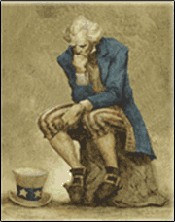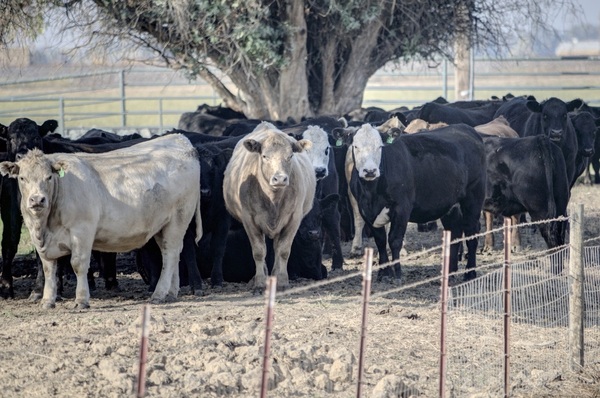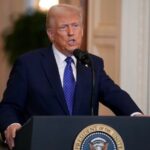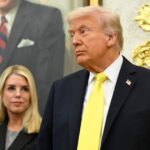
–>
January 11, 2023
Ordinary people have extraordinary power. Don’t believe me? Watch what happens if tens of millions ever decide to close their bank accounts all at once. Or critical sectors of the workforce decide to stay home for weeks. Or a sizable percentage of the population refuses to obey arbitrary and capricious government orders. When citizens become fed up enough to take matters into their own hands, those with government-bestowed titles learn quickly how little power those vaunted titles actually have.
‘); googletag.cmd.push(function () { googletag.display(‘div-gpt-ad-1609268089992-0’); }); }
If you were to ask a collection of random people what governments do, you would hear a multitude of answers: they make and enforce laws, collect taxes, regulate industry, police citizens, and mobilize militaries. In actuality, what governments do, first and foremost, is prevent citizens from ever understanding the above paragraph. Their first order of business is to convince the vast majority of people not in positions of authority to obey the cumulative will of the small minority in charge of the government. For most of human history, this magic act, in which so few control so many, has been accomplished through intimidation, violence, and other forms of coercion.
“Nothing is so certain as death and taxes,” the old proverb goes, but it might just as accurately be said of almost all governments throughout history that those in charge will extract from those under their thumb either death or taxes — and often both. Force is the only language most governments know, although that force is often disguised as being performed for the people’s “own good.” As it turns out, force is generally sufficient for corralling humans into their government-controlled pens, especially if there are carrots or other treats inside to keep them content, if not particularly happy. When those pens have nothing attractive to offer and become overrun with filth, however, then those doing the corralling must resort to more and more force in order to make their captives obey.
The rejection of this coercive paradigm formed the intellectual backbone of American independence. Aside from some notable Greek city-states and a few mostly forgotten tribes, America’s Enlightenment experiment in self-determination set itself apart from all other past forms of governance precisely because its guiding principles sought to level the playing field between the governing and governed and replace the confines of the government’s animal pen with a shared freedom to roam. “We the people,” the U.S. Constitution begins, before articulating common ideals uniting all Americans, including a determination to “secure the blessings of liberty” for “ourselves and our posterity.” The people, as the architects of the American system of government, alone control the limits of their liberty and perpetually hold the keys to any artificial pen constricting their free will.
‘); googletag.cmd.push(function () { googletag.display(‘div-gpt-ad-1609270365559-0’); }); }
Now, depending upon your level of cynicism, this revolutionary articulation of human self-government either never truly succeeded or has achieved periods of relative success while enduring its share of failures, as all human institutions invariably do. Putting America’s scorecard to the side, however, by far its most powerful contribution to human liberty has been the passing down from one generation to the next both a shared understanding of what freedom means and a shared commitment to pursuing American freedom doggedly, however incomplete.
America’s civic bonds have prevailed through challenging times by sustaining a common determination to preserve individual rights and to protect those rights from the treacherous dilutions of government decree. The inviolable sanctity of the individual — the acknowledgment that each human has special worth that cannot be indiscriminately erased for some utopian and misguided “greater good” — provides the foundations for American equality.
In America, no person’s life, liberty, or property can be said to be more important than any other’s. This has been the shared truth, even when Americans have failed to live up to the standard, keeping the people in charge of their own pen and government force in check, if not at bay. Although President Truman will always be remembered for embracing the notion that “the buck stops here,” ultimately, the buck stops at all times with the American people. They are, as William Ernest Henley would attest, alone the masters of their fates and the captains of their souls. That’s the American way.
It is not the American way, however, for citizens to live higgledy-piggledy under the ambiguous reign of one government dictate to the next. It is not American for an unelected bureaucracy to create rules out of thin air and enforce them upon the people through agency prerogative and regulation. It is not American for presidents to legislate through executive order.
It is not American for congresses to conduct show trials against American citizens or to demand that tech companies censor points of view. It is not American for courts to scribble over the Constitution whenever expedient. It is not American for the Department of (in)Justice to persecute citizens for their political beliefs or for the FBI to act as a lethal enforcer against the regime’s political enemies.
It is not American for there to be so many criminal statutes that no American could possibly know them all, let alone confidently act without fear of sanction. It is not American for there to be so many government agencies and divisions that no American could capably draw a diagram listing their roles and functions.
‘); googletag.cmd.push(function () { googletag.display(‘div-gpt-ad-1609268078422-0’); }); } if (publir_show_ads) { document.write(“
It is not American for the government to champion its secular religion over the moral tenets of Americans’ spiritual faiths. It is not American for the government to ignore the will of its citizens and subvert immigration law by leaving its borders unprotected and wide open. It is not American for an amorphous Intelligence Community to spy on American citizens with neither warrant nor probable cause. It is not American for the news media to be so co-opted by the State that they almost universally support the government’s talking points — no matter how ludicrous and unsupported — while taking aim at dissenting citizens’ debate.
It is not normal for a “government of the people” to regularly denigrate its citizens as racists, extremists, deplorables, terrorists, misogynists, bigots, and rubes. It is not normal for any government claiming to be “for the people” to declare half the nation “enemies of the State.”
These are the acts of a government committed to using intimidation, violence, and other forms of coercion in order to get its way. In short, they are everything the American system revolted against when American independence rejected top-down force for equality, individual liberty, unassailable rights, and freedom of thought beyond the reach of the government’s say.
That so many Americans still fail to see how distorted their acting government has become from what their Constitution affords is proof that those who corral humans into pens for a living have done their jobs exceptionally well. Like too many generations before them, Americans have allowed themselves to be rounded up with a little prodding, some tasty carrots, and reassuring words along the way. Too many look at the barbed wire surrounding them and assume that life must always be endured behind the government’s enclosure. Obedience in exchange for the government’s promises of safety, welfare, and happiness has created a narcotic bliss.
What happens, though, if enough Americans decide they are not safe, comfortable, or happy? What happens when the American government runs out of carrots, and those in cages realize they are surrounded by nothing but filth and decay? Perhaps then ordinary people will realize what extraordinary power they actually possess. Perhaps then sleeping Americans will reawaken. Perhaps the descendants of those who once turned the world upside-down will remember how to reject government tyranny and demand a return to the American way.

Image via Public Domain Pictures.
<!– if(page_width_onload <= 479) { document.write("
“); googletag.cmd.push(function() { googletag.display(‘div-gpt-ad-1345489840937-4’); }); } –> If you experience technical problems, please write to [email protected]
FOLLOW US ON
<!–
–>
<!– _qoptions={ qacct:”p-9bKF-NgTuSFM6″ }; ![]() –> <!—-> <!– var addthis_share = { email_template: “new_template” } –>
–> <!—-> <!– var addthis_share = { email_template: “new_template” } –>






